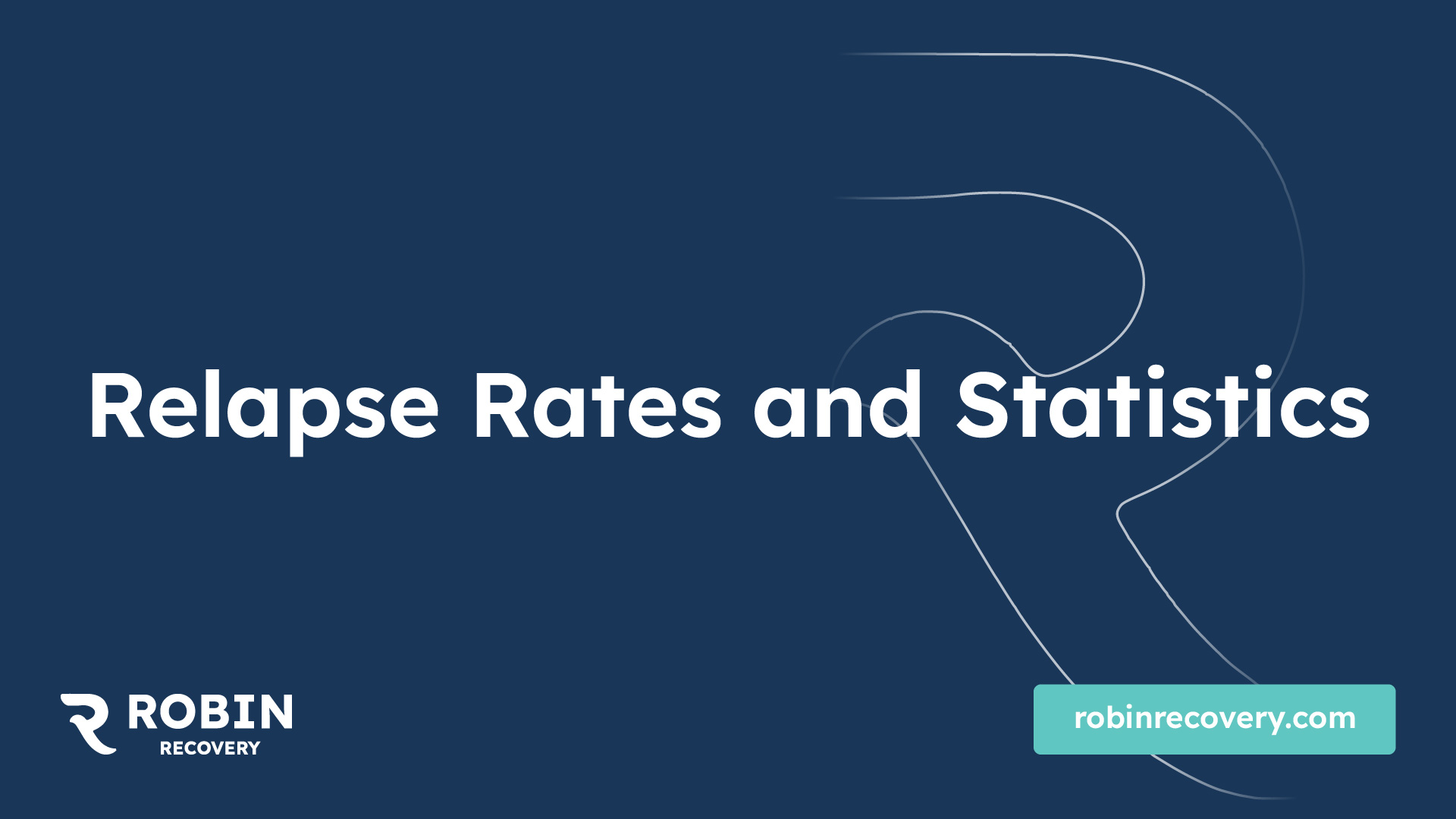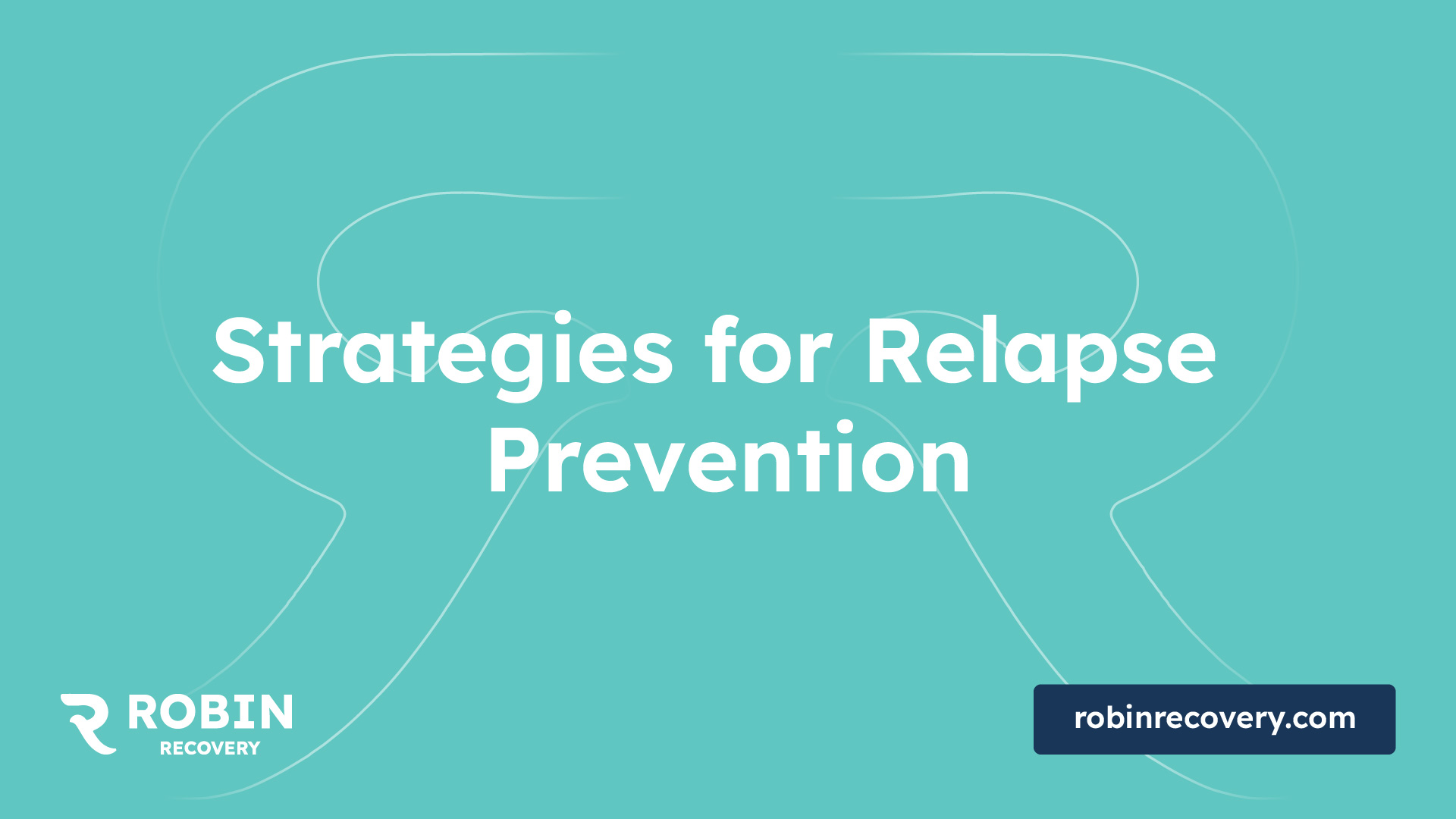Does Relapse to Drug Use Mean Treatment has Failed?


Understanding Addiction Relapse
When it comes to addiction treatment, understanding the concept of addiction relapse is crucial for both patients and healthcare providers. Relapse refers to the return to drug or alcohol use after a period of abstinence. It is important to note that relapse does not mean that treatment has failed; instead, it signals that additional or different forms of treatment may be necessary to address the underlying issues [1].
Definition of Relapse
Relapse can be defined as the recurrence of substance use after a period of abstinence. It is important to recognize that relapse is not a moral failing or a lack of willpower; rather, it is a complex and multifaceted process that involves various factors. It is essential to approach relapse with compassion and view it as an opportunity for growth and further treatment.
Chronic Nature of Addiction
Addiction is a chronic medical condition that affects millions of individuals across the United States. Similar to other chronic illnesses like asthma, hypertension, and diabetes, addiction is characterized by a high rate of relapse. Research suggests that relapse rates for substance abuse range from 40 to 60 percent.
Understanding the chronic nature of addiction is crucial for both individuals struggling with addiction and their loved ones. It helps to dispel the misconception that addiction can be permanently cured with a single round of treatment. Instead, addiction should be viewed as a lifelong journey, with relapse being a potential part of that journey. This understanding empowers individuals to seek ongoing support and treatment to manage their addiction effectively.
Recognizing that addiction is a chronic condition also emphasizes the importance of providing comprehensive and lengthy treatment. Research supports a correlation between longer durations of treatment and improved treatment outcomes. Longer treatment periods allow for the thorough assessment of an individual's unique challenges and needs, increasing the likelihood of successful recovery.
To support individuals in their recovery journey, cognitive-behavioral therapy (CBT) plays a vital role. CBT is a widely used approach in addiction treatment that focuses on exploring the relationship between a person's thoughts and actions. By identifying and modifying negative thought patterns, CBT helps individuals develop healthier coping mechanisms and enhance relapse prevention.
By understanding the definition of relapse and the chronic nature of addiction, individuals and their support systems can approach addiction treatment with empathy, resilience, and a commitment to ongoing care. It is essential to view relapse as an opportunity for growth and to seek appropriate treatment to continue the journey towards recovery. For more information on ways to prevent relapse, check out our article on ways to prevent relapse.
Factors Contributing to Relapse
When it comes to understanding addiction relapse, it's important to consider the various factors that can contribute to relapse. These factors can be categorized into emotional triggers, mental triggers, and physical triggers.
Emotional Triggers
Emotional triggers play a significant role in relapse. Certain circumstances or emotions can lead to a heightened risk of returning to substance use. For individuals in recovery, managing these triggers is crucial for maintaining long-term sobriety. Some common emotional triggers include:
- Interactions with Friends and Family: Friends and family members who still drink or use drugs can often be a trigger for relapse. Being around substance use can create temptation and make staying sober challenging.
- Attending Events where Alcohol is Served: Social gatherings or events where alcohol is present can be challenging for individuals in recovery. The presence of alcohol can serve as a trigger and increase the risk of relapse, especially when trying to avoid temptation.
- Emotional Distress: Feelings such as depression, anxiety, loneliness, anger, or frustration can lead individuals back into their old addictive habits if they do not have healthy ways of managing these emotions.
Mental Triggers
Mental triggers can also contribute to relapse. These triggers are often associated with old coping patterns that need to be replaced with healthier ones. It's essential for individuals in recovery to develop strategies for dealing with these triggers. Some common mental triggers include:
- Cravings: Cravings for drugs or alcohol are one of the most common triggers for relapse. They can arise suddenly and unexpectedly, making it essential to have coping strategies in place to address cravings.
- Negative Thinking Patterns: Negative thoughts, self-doubt, or a lack of confidence can contribute to relapse. It's important to recognize and challenge these negative thinking patterns to maintain a positive mindset and reduce the risk of relapse.
Physical Triggers
Physical triggers also play a role in relapse, particularly in terms of the risk of overdose. This risk is especially prevalent when individuals return to drug use after a period of non-use, such as after detoxification or rehabilitation. Changes in tolerance levels can increase the risk of overdose in such situations [2].
Understanding these factors that contribute to relapse is crucial for developing effective relapse prevention strategies. By addressing emotional, mental, and physical triggers, individuals in recovery can enhance their chances of long-term sobriety. Engaging in therapy, utilizing medications when appropriate, and seeking support from peers can also be valuable tools in preventing relapse [4].
Treatment and Relapse
When it comes to addiction treatment, relapse can be a challenging and discouraging experience for both the individual and their loved ones. However, it's important to understand that relapse does not necessarily mean that treatment has failed. In fact, relapse is often considered a part of the recovery process, and it provides an opportunity for individuals to learn from their setbacks and make necessary adjustments to their treatment plan.
Importance of Lengthy Treatment
Research supports a correlation between longer lengths of time in treatment and improved treatment outcomes. Adequate lengths of treatment may help ensure that the full range of a patient's unique problems and needs are addressed. The duration of treatment can vary depending on multiple factors, such as the severity of addiction, individual progress, and personal circumstances. It's crucial for individuals to commit to the entire course of treatment and follow through with aftercare programs to enhance their chances of successful recovery.
Role of Cognitive Behavioral Therapy (CBT)
One effective therapeutic approach in addiction treatment is Cognitive Behavioral Therapy (CBT). CBT focuses on identifying and modifying negative thoughts, beliefs, and behaviors that contribute to substance use. It helps individuals develop healthier coping mechanisms and strategies to manage triggers and cravings. By addressing distorted thinking patterns and exploring underlying emotions, CBT equips individuals with the tools needed to navigate challenging situations and reduce the risk of relapse.
CBT is often integrated into comprehensive treatment programs and can be delivered through individual counseling sessions, group therapy, or a combination of both. The structured and goal-oriented nature of CBT makes it an effective approach for individuals in addiction recovery.
To complement the benefits of CBT, other evidence-based therapies such as motivational interviewing, contingency management, and family therapy may also be incorporated into the treatment plan. These therapies provide additional support and guidance to individuals, helping them address the underlying causes of addiction and develop relapse prevention strategies.
It's important to note that successful treatment for drug and alcohol addiction requires customization, continual evaluations, and modifications when necessary. Each person's journey to recovery is unique, and treatment plans should be tailored to their specific needs. While relapse rates can be discouraging, it's essential to remember that recovery is a lifelong process, and setbacks can be valuable learning opportunities.
Understanding the importance of lengthy treatment and the role of evidence-based therapies like CBT can empower individuals in their recovery journey. By embracing comprehensive treatment plans and staying committed to their recovery, individuals can increase their chances of achieving long-term sobriety and reducing the risk of relapse. For more information on ways to prevent relapse and cope with triggers, visit our article on ways to prevent relapse.

Relapse Rates and Statistics
Understanding the relapse rates and success rates in addiction treatment is crucial for evaluating the effectiveness of different approaches and managing expectations. Let's explore the relapse rates in substance abuse and the success rates in treatment.
Relapse Rates in Substance Abuse
Relapse rates for drug and alcohol use resemble those of other chronic diseases. It is estimated that 40-60% of individuals in recovery experience a relapse at some point during their journey [5]. This statistic highlights the challenges individuals face in maintaining long-term abstinence.
It's important to note that relapse does not necessarily indicate failed treatment. Research shows that addiction is a chronic condition, and relapse is often part of the recovery process. For example, national surveys suggest that only about one-third of individuals with alcohol use disorder (AUD) attempt to quit drinking each year, and of those, only about 25% are successful at reducing their alcohol intake for more than a year. Relapse should be seen as an opportunity to reassess treatment strategies, modify modalities, or try different approaches to achieve lasting recovery.
Success Rates in Treatment
The success rates in addiction treatment vary depending on various factors, including the individual's commitment to the treatment process, the duration of treatment, and the availability of aftercare programs. Research indicates that most individuals who receive and remain in treatment experience positive outcomes, such as reduced drug or alcohol misuse, improved social and psychological functioning, and a decrease in criminal activity.
However, completing the entire course of treatment can be challenging. Less than 42% of individuals who enter treatment for drug and alcohol use successfully complete it [5]. This highlights the need for ongoing support and customization of treatment approaches to meet the unique needs of each individual.
The success of treatment is not solely determined by immediate abstinence, but also by the ability to maintain sobriety in the long term. Research shows that after a full year of sobriety, the number of former users who remain consistently sober increases to 50%. Furthermore, only 15% of people relapse after five years of abstinence. This emphasizes the importance of continued care, aftercare programs, and ongoing support to sustain recovery.
In conclusion, relapse rates in substance abuse can be significant, but relapse should not be seen as a failure of treatment. It is a common part of the recovery process, and successful treatment involves continual evaluation, modification of modalities, and ongoing support. By customizing treatment approaches, completing the full course of treatment, and engaging in aftercare programs, individuals can increase their chances of long-term sobriety and successful recovery.
Common Causes of Relapse
Relapse is a complex issue that can be influenced by various factors. Understanding the common causes of relapse is crucial in developing effective strategies for prevention and recovery.
Personal Challenges
Personal challenges play a significant role in addiction relapse. These challenges can encompass a range of issues including work-related problems, emotional and psychological struggles, financial hardships, difficulties in personal relationships, and rejection by social support networks. These personal challenges can increase stress levels and make individuals more vulnerable to relapse. It is important for individuals in recovery to address these challenges and develop coping mechanisms to navigate through them.
Environmental Triggers
The environment in which someone in recovery finds themselves can also be a trigger for relapse. Interacting with friends or family members who still engage in substance use can present challenges and increase the risk of relapse. Additionally, attending events or situations where alcohol or drugs are present can be particularly challenging for individuals trying to maintain sobriety. Being aware of these triggers and implementing strategies to avoid or manage them is crucial in preventing relapse. For more information on ways to avoid substance use relapse triggers, refer to our article on ways to avoid substance use relapse triggers.
Emotional States
Emotional states, such as depression, anxiety, loneliness, anger, or frustration, can be powerful triggers for relapse. When individuals do not have healthy ways of managing these emotions, they may be more inclined to turn to substances as a coping mechanism. It is essential for individuals in recovery to develop effective strategies for emotional regulation and seek support when facing challenging emotions. Cravings, which can arise suddenly and unexpectedly, are also common triggers for relapse. Having strategies in place for dealing with cravings, such as talking through them with a therapist, can be helpful in overcoming these challenges.
To prevent relapse, individuals should prioritize self-care behaviors that support mental wellness. Engaging in activities such as maintaining a healthy diet, exercising regularly, and practicing good sleep hygiene can contribute to overall well-being and reduce the risk of relapse [7]. For more strategies on preventing relapse, refer to our article on ways to prevent relapse.
By understanding the common causes of relapse, individuals in recovery and their support networks can work together to develop personalized relapse prevention plans. These plans should address personal challenges, environmental triggers, and provide strategies for managing emotional states. With the right support and strategies in place, individuals can increase their resilience and decrease the likelihood of relapse.

Strategies for Relapse Prevention
When it comes to preventing relapse in addiction recovery, there are various strategies that can be employed. These strategies aim to provide individuals with the tools and support necessary to maintain their sobriety. Here, we will explore three key strategies for relapse prevention: therapy, medications, and peer support.
Therapy
Therapy plays a crucial role in relapse prevention, helping individuals address underlying issues, develop coping mechanisms, and modify negative thought patterns. One widely used therapeutic approach is Cognitive Behavioral Therapy (CBT), which explores the relationship between a person's thoughts and actions. By identifying and challenging negative beliefs and behaviors, individuals can gain better control over their addiction triggers and develop healthier coping strategies. CBT has been found to be effective in promoting relapse prevention and increased abstinence. For more information on ways to avoid substance use relapse triggers, visit our article on ways to avoid substance use relapse triggers.
Medications
Medications can be an important component of relapse prevention, especially in the treatment of alcohol use disorders (AUD) and opioid use disorders (OUD). Medications like disulfiram, naltrexone, and acamprosate have been used to help prevent relapses in AUD, while buprenorphine, methadone, and naltrexone are commonly used for OUD. These medications work by relieving withdrawal symptoms and reducing cravings, allowing individuals to focus on their recovery journey. It's important to note that these medications should be used as part of a comprehensive treatment plan under the guidance of a healthcare professional. To learn more about specific medications used in the treatment of AUD and OUD, refer to our article on how to use the term "relapse" and visit the Substance Abuse and Mental Health Services Administration (SAMHSA) website.
Peer Support
Peer support can be a valuable source of strength and encouragement during the recovery process. Connecting with others who have experienced similar challenges can provide a sense of belonging and understanding. Support groups such as Alcoholics Anonymous (AA) and Narcotics Anonymous (NA) offer a safe and non-judgmental environment where individuals can share their experiences, gain insights, and receive support from others who have walked a similar path. Peer support can also extend beyond formal support groups, involving friends, family members, and mentors who can provide guidance and accountability. For more information on the power of peer support, refer to our article on rebounding from addiction relapse.
By incorporating these strategies into an individualized relapse prevention plan, individuals can enhance their chances of maintaining long-term sobriety. It's important to remember that relapse is not a sign of failure but rather an opportunity to learn and grow. With the right support, tools, and mindset, individuals can overcome the challenges of addiction and continue on their journey towards a healthier and happier life.
References
[1]: https://americanaddictioncenters.org/rehab-guide/relapse-prevention
[2]: https://adf.org.au/reducing-risk/relapse/
[3]: https://www.sanantoniorecoverycenter.com/rehab-blog/5-most-common-causes-of-addiction-relapse/
[5]: https://americanaddictioncenters.org/rehab-guide/success-rates-and-statistics
[6]: https://www.gatewayfoundation.org/addiction-blog/is-relapse-part-of-recovery/
[7]: https://www.familyaddictionspecialist.com/blog/10-most-common-reasons-for-addiction-relapse
[8]: https://www.ncbi.nlm.nih.gov/books/NBK551500/
[9]: https://www.samhsa.gov/medications-substance-use-disorders
